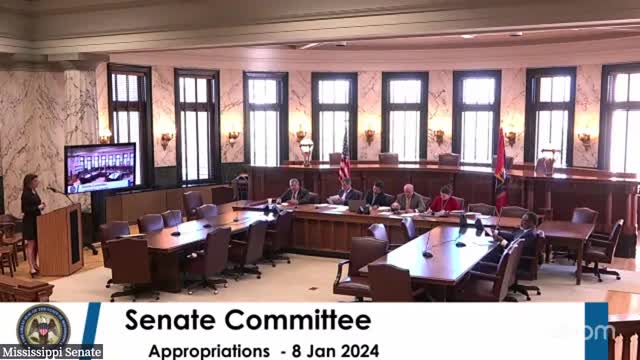Judicial Performance Commission requests staff pin to investigate youth-court concerns and cover rising trial costs
Get AI-powered insights, summaries, and transcripts
Subscribe
Summary
The Judicial Performance Commission told the Appropriations subcommittee it needs an additional experienced litigation attorney position, restored staffing removed in a budget analyst snapshot, and funding to cover increasing trial expenses—particularly cases alleging diminished capacity and planned youth-court reviews.
Rachel Wilson, executive director of the Judicial Performance Commission, told the committee the agency needs more staff and operating funds to handle current caseloads and a rising number of complex matters.
“If you want us to just catch up the cases that we currently have on our docket and pay our expenses, then you're looking at a deficit of ... $81,000,” Wilson said, describing eight cases now on the commission’s docket and additional testing and expert expenses in some matters. She said trying one case can cost “from a low of $3,000, a high of $8,000” for subpoenas, travel and court reporters, and that diminished-capacity expert evaluations can range “from a low of $3,100 … to a high of $10,000–$15,000 per case.”
Wilson told the committee the agency currently has five personnel PINs and is asking first to restore a PIN that an analyst cut and then to add one additional experienced litigation attorney with youth-court expertise. She proposed funding the extra position temporarily to allow focused review of youth courts statewide and to investigate allegations identified by a recent task force and other reports.
Wilson said the Judicial Performance Commission has observed an upward trend in complaints alleging diminished capacity among judges and that the office’s responsibility includes both investigation and community-facing training and education for judges to reduce misconduct. She said restoring the cut PIN and adding a youth-court specialist would increase the agency’s capacity to investigate current docketed cases, pursue new complaints and carry out training responsibilities.
Committee members asked for clarification about the PIN snapshot and the size of the requested increase. Wilson said that keeping the five current employees plus adding one position would increase the agency’s operating request by $329,202 above the analyst’s recommendation; she asked that the committee consider a temporary, targeted PIN for two to three years to focus on youth-court reviews and investigations.
Ending: The commission’s request was lodged with the committee for further consideration; committee members indicated they will follow up on PIN restoration and cost details. No formal appropriation was decided at the hearing.
